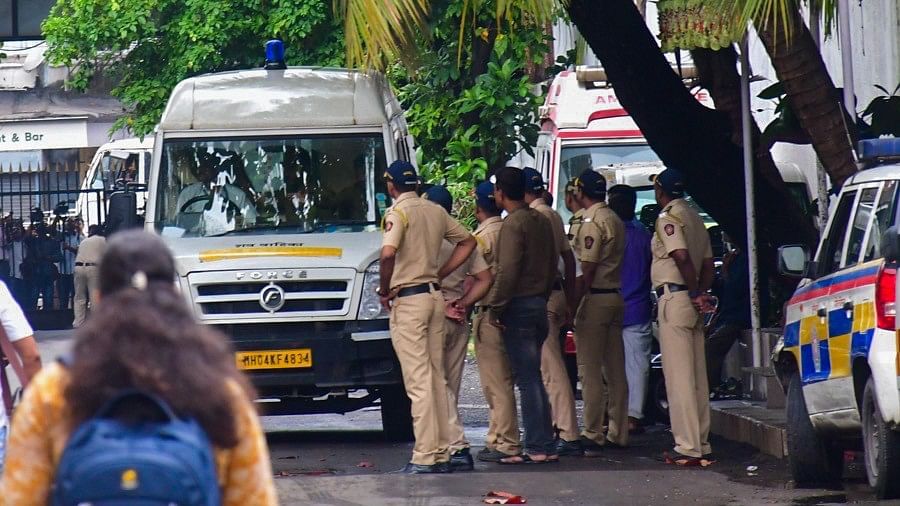Updated on: October 14, 2024 4:22 am GMT
In India, the delicate balance between law enforcement and civil rights is under intense scrutiny following the controversial police killing of Akshay Shinde, the prime suspect in a sexual assault case involving two minor girls. As details surrounding the event unfold, many are questioning whether this incident represents a disturbing trend of fake encounter killings in the country.
What Happened to Akshay Shinde?
Akshay Shinde was shot dead by the Maharashtra Police while he was apparently in their custody and being transported for questioning about the assault case. Reports suggest that during this transfer, Shinde managed to snatch a firearm from a police officer, prompting the officers to open fire. This explanation, however, has raised eyebrows and sparked widespread skepticism. Critics argue the circumstances surrounding Shinde’s death seem to align too closely with a pattern observed in previous instances of alleged extrajudicial killings.
Key Questions Raised
Several critical questions arise from the incident:
- How could a person in handcuffs, specifically someone with no known firearm training, manage to wrest control of a weapon?
- What led police officers—tasked with maintaining public safety—to use lethal force rather than non-lethal methods to subdue a handcuffed suspect?
- Is there political motivation behind the killing, especially as Maharashtra gears up for state assembly elections?
Critics of the police’s actions argue that Shinde’s death serves as a convenient act of “instant justice,” potentially benefitting the ruling party by satisfying public outrage over the assault case.
Political Implications
The timing of Shinde’s death is particularly potent in the political landscape of Maharashtra. With the assembly elections approaching, many observers believe that the police’s actions may have been influenced by a desire to appease a furious public and demonstrate a tough stance on crime. Leaders from the Shiv Sena party have openly praised the police’s actions and have shown little regard for the dubious legitimacy of the incident.
The state government claims that the opposition parties, who previously demanded quick justice for the victims, should not criticize the police’s rapid response. The Bharatiya Janata Party (BJP) has countered accusations of hypocrisy, questioning whether the opposition is merely protecting criminals in these times of heightened emotions.
The Need for Investigative Integrity
Despite the atmosphere of anger surrounding the sexual assault case, there must be a commitment to due process and legal integrity. The Constitution of India grants every accused person the right to a fair trial, regardless of the severity of the charges. This principle upholds the merits of justice over vengeance. Adopting a culture of instant justice could have dire implications, leading society into a dangerous terrain of vigilantism.
The Supreme Court has intervened in similar cases in the past and has emphasized the importance of independent investigations into police encounters. The current situation involving Akshay Shinde exemplifies the need for a thorough examination of the events preceding his death.
What Happens Next?
As calls for accountability grow, the Maharashtra police will be under pressure to substantiate their claims regarding Shinde’s death. Legal experts argue that a transparent investigation, possibly guided by the judiciary, is essential to restoring public confidence in law enforcement.
Many are advocating for an inquiry by a third-party organization to ensure impartiality and avoid any potential biases stemming from political ramifications. As this story continues to develop, all eyes are on how the Maharashtra government will handle the fallout and whether a culture of extrajudicial killings will be addressed in the public sphere.
Conclusion: Upholding the Rule of Law
The tragic killing of Akshay Shinde serves as a stark reminder of the importance of adhering to the rule of law in society. Law enforcement agencies must function within established legal frameworks to avoid a descent into chaos. Serving justice does not justify abandoning civil rights or neglecting due process.
Everyone deserves a fair trial. If police and law enforcement don’t follow the rules that keep our society safe and just, then the idea of justice is in danger. The situation in Maharashtra shows us that we need to change some laws and make sure everyone’s rights are protected, no matter what. A strong democracy can only thrive when justice is fair and applied to everyone equally.
